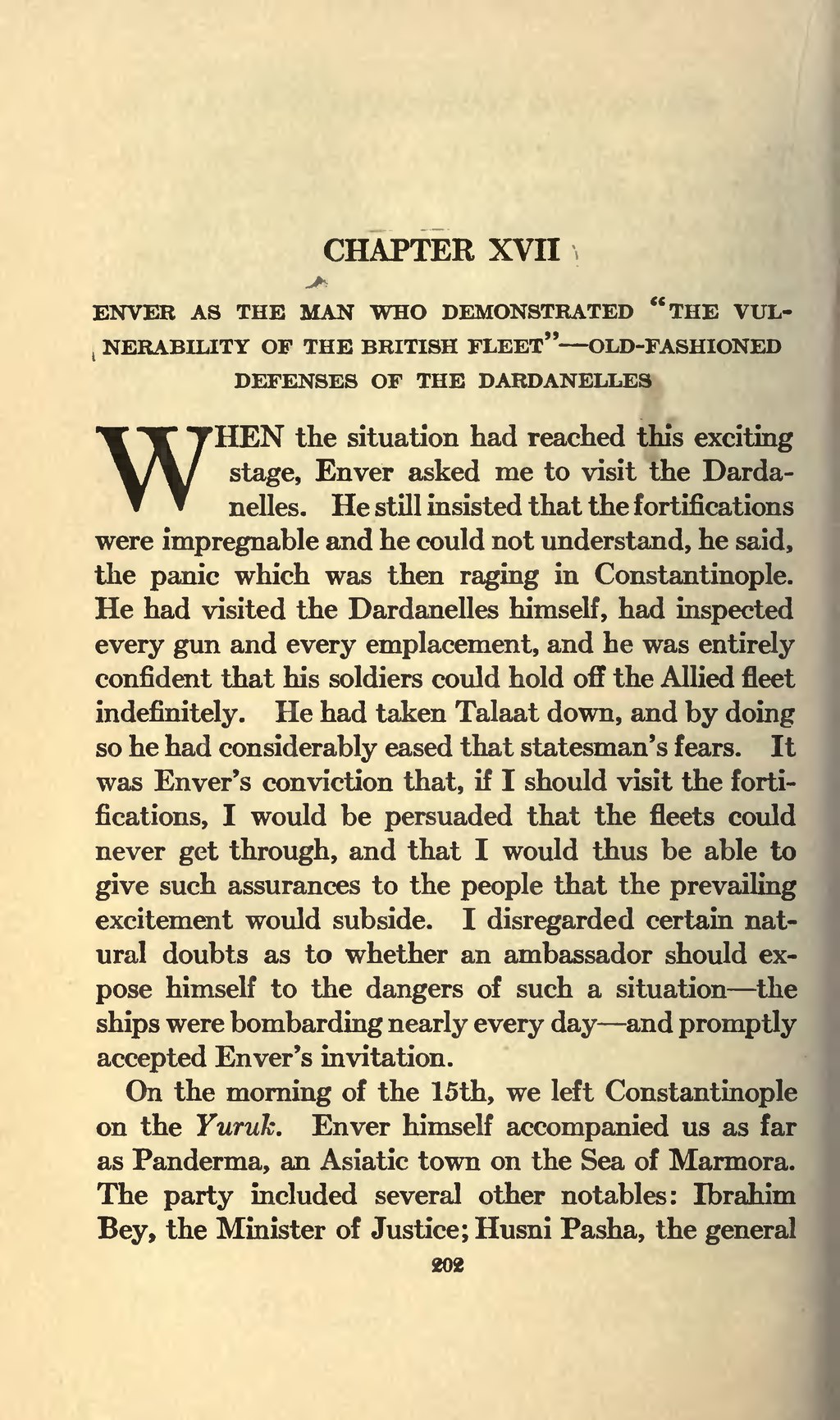CHAPTER XVII
ENVER AS THE MAN WHO DEMONSTRATED "THE VULNERABILITY OF THE BRITISH FLEET"—OLD-FASHIONED DEFENSES OF THE DARDANELLES
WHEN the situation had reached this exciting stage, Enver asked me to visit the Dardanelles. He still insisted that the fortifications were impregnable and he could not understand, he said, the panic which was then raging in Constantinople. He had visited the Dardanelles himself, had inspected every gun and every emplacement, and he was entirely confident that his soldiers could hold off the Allied fleet indefinitely. He had taken Talaat down, and by doing so he had considerably eased that statesman's fears. It was Enver's conviction that, if I should visit the fortifications, I would be persuaded that the fleets could never get through, and that I would thus be able to give such assurances to the people that the prevailing excitement would subside. I disregarded certain natural doubts as to whether an ambassador should expose himself to the dangers of such a situation—the ships were bombarding nearly every day—and promptly accepted Enver's invitation.
On the morning of the 15th, we left Constantinople on the Yuruk. Enver himself accompanied us as far as Panderma, an Asiatic town on the Sea of Marmora. The party included several other notables: Ibrahim Bey, the Minister of Justice; Husni Pasha, the general
202

